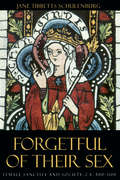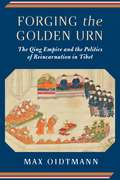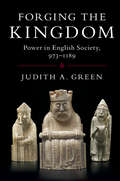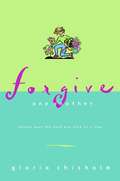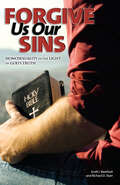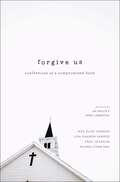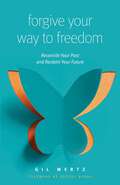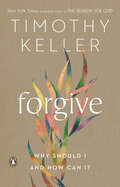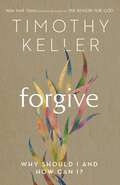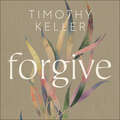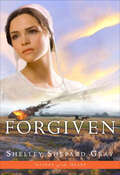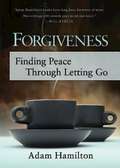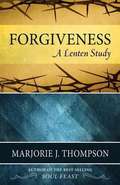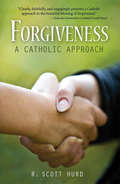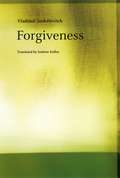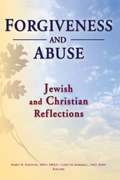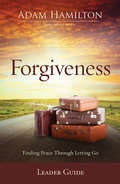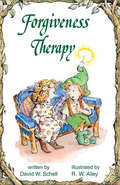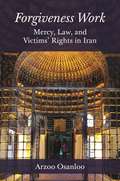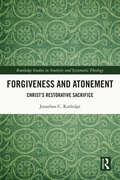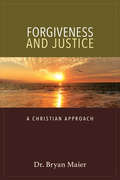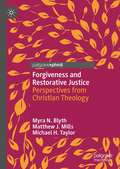- Table View
- List View
Forgetful of Their Sex: Female Sanctity and Society, ca. 500–1100
by Jane Tibbetts SchulenburgIn this remarkable study of over 2,200 female and male saints, Jane Schulenburg explores women's status and experience in early medieval society and in the Church by examining factors such as family wealth and power, patronage, monasticism, virginity, and motherhood. The result is a unique depiction of the lives of these strong, creative, independent-minded women who achieved a visibility in their society that led to recognition of sanctity. "A tremendous piece of scholarship. . . . This journey through more than 2,000 saints is anything but dull. Along the way, Schulenburg informs our ideas regarding the role of saints in the medieval psyche, gender-specific identification, and the heroics of virginity." —Library Journal "[This book] will be a kind of 'roots' experience for some readers. They will hear the voices, haunted and haunting, of their distant ancestors and understand more about themselves." —Christian Science Monitor "This fascinating book reaches far beyond the history of Christianity to recreate the 'herstory' of a whole gender." —Kate Saunders, The Independent
Forging the Golden Urn: The Qing Empire and the Politics of Reincarnation in Tibet (Studies of the Weatherhead East Asian Institute, Columbia University)
by Max OidtmannIn 1995, the People’s Republic of China resurrected a Qing-era law mandating that the reincarnations of prominent Tibetan Buddhist monks be identified by drawing lots from a golden urn. The Chinese Communist Party hoped to limit the ability of the Dalai Lama and the Tibetan government-in-exile to independently identify reincarnations. In so doing, they elevated a long-forgotten ceremony into a controversial symbol of Chinese sovereignty in Tibet.In Forging the Golden Urn, Max Oidtmann ventures into the polyglot world of the Qing empire in search of the origins of the golden urn tradition. He seeks to understand the relationship between the Qing state and its most powerful partner in Inner Asia—the Geluk school of Tibetan Buddhism. Why did the Qianlong emperor invent the golden urn lottery in 1792? What ability did the Qing state have to alter Tibetan religious and political traditions? What did this law mean to Qing rulers, their advisors, and Tibetan Buddhists? Working with both the Manchu-language archives of the empire’s colonial bureaucracy and the chronicles of Tibetan elites, Oidtmann traces how a Chinese bureaucratic technology—a lottery for assigning administrative posts—was exported to the Tibetan and Mongolian regions of the Qing empire and transformed into a ritual for identifying and authenticating reincarnations. Forging the Golden Urn sheds new light on how the empire’s frontier officers grappled with matters of sovereignty, faith, and law and reveals the role that Tibetan elites played in the production of new religious traditions in the context of Qing rule.
Forging the Kingdom: Power in English Society, 973–1189
by Green Judith A.Between the imperial coronation of Edgar in 973 and the death of Henry II in 1189, English society was transformed. This lively and wide-ranging study explores social and political change in England across this period, and examines the reasons for such developments, as well as the many continuities. By putting the events of 1066 firmly in the middle of her account, Judith Green casts new light on the significance of the Norman Conquest. She analyses the changing ways that kings, lords and churchmen exercised power, especially through the building of massive stone cathedrals and numerous castles, and highlights the importance of London as the capital city. The book also explores themes such as changes in warfare, the decline of slavery and the integration of the North and South West, as well as concepts such as state, nationalism and patriarchy.
Forgive One Another: Moving Past the Hurt One Step at a Time
by Gloria ChisholmRooted in the theory that it takes twenty-one days to build a habit, each of Gloria Chisholm's warm, practical "One Another" books is composed of twenty-one daily readings designed to help you make positive life changes that benefit you and those you love.Make Forgiveness a Habit You Won't Want to Break.For most of us, the act of forgiveness requires great force of will. Extension of grace is rare and demands a conscious choice. Yet if we are to obey Christ's teachings and follow his example, we must be willing to consistently forgive those in our lives who seem the least forgivable. We must commit not just to granting the occasional pardon, but to totally embracing a lifestyle of forgiveness. Through practical, everyday examples, Forgive One Another reveals how you can work through bitterness and betrayal and come to a place where you habitually, persistently, and lovingly offer compassion and forgiveness, as Christ commands. LEARN HOW TO FORGIVE THE UNFORGIVABLE. FIND RELEASE FROM THE PRISON OF BITTERNESS AND HOSTILITY CONNECTED TO PAST OFFENSES.LEARN TO SEE FORGIVENESS AS A PROCESS RATHER THAN A ONE-TIME EVENT.GET HELP FOR STUCK RELATIONSHIPS.Gloria Chisholm is a writer, editor, and Writer's Digest instructor. She has written several non-fiction books, including Love One Another, The Passionate Edge, Huddle Up, and Encourage One Another. Her passion for writing keeps her in demand as a speaker at writers' workshops around the country. Prior to writing full time, Gloria was the managing editor of Parents of Teenagers magazine. She lives in the Seattle area and is the mother of five grown children.From the Trade Paperback edition.
Forgive Us Our Sins: Homosexuality in the Light of God's Truth
by Richard D Starr Scott L BarefootWhat does the Bible say about homosexuality?Homosexuality, and what the Bible says about it, is a predominant subject in the world we live in. How do Christians lovingly share what God's Word says about homosexuality with their friends and family members? And if you're a Christian who struggles with homosexuality, what does God want you to know?This book is both a topical discussion on the difficult conversation about what the Bible says about homosexuality and the first-person testimony of one man's real-life exit from a gay lifestyle back to Jesus Christ.In this book, you will find very practical advice for overcoming temptation, both from someone who has personally lived through the struggle and from a pastor with a deep love for God's Word and people. But the authors want you to know that you won't find a quick and easy cure-all, silver bullet, or magic formula to "cure" homosexuality in this book. There is no cure for homosexuality other than the one cure for all sin: God-given faith in the forgiveness of Jesus.Authors Scott Barefoot and Pastor Richard Starr avoid judgment and stereotypes by delicately balancing biblical law and gospel for an encouraging, hope-filled message to all believers who struggle with homosexuality—and any temptation. If you, or someone you love, are seeking to turn away from a life of homosexuality and turn your life back to Jesus, this book is for you.
Forgive Us Our Trespasses
by Lloyd C. DouglasDinny was born to hatred: born in savage revolt against the world that had caught and crushed his too-trusting young mother. By the time he was twenty-five he had been successively typesetter, reporter, football star, and columnist. He had rocked a small mid-Western college to its foundations by blacking the eyes of its Y.M.C.A. Secretary in defense of his college president. For this he had been expelled. But expulsion had only given him the chance to use his biting pen to better advantage.
Forgive Us: Confessions of a Compromised Faith
by Soong-Chan Rah Lisa Sharon Harper Mae Elise Cannon Troy JacksonMany people have become angry and frustrated with organized religion and evangelical Christianity, in particular. Too often the church has proven to be a source of pain rather than a place of hope. Forgive Us acknowledges the legitimacy of much of the anger toward the church. In truth, Christianity in America has significant brokenness in its history that demands recognition and repentance. Only by this path can the church move forward with its message of forgiveness, reconciliation, and peace. Forgive Us is thus a call to confession. From Psalm 51 to the teachings of Jesus to the prayers of Nehemiah, confession is the proper biblical response when God’s people have injured others and turned their backs on God’s ways. In the book of Nehemiah, the author confesses not only his own sins, but also the sins of his ancestors. The history of the American church demands a Nehemiah-style confession both for our deeds and the deeds of those who came before us. In each chapter of Forgive Us two pastors who are also academically trained historians provide accurate and compelling histories of some of the American church’s greatest shortcomings. Theologian Soong-Chan Rah and justice leader Lisa Sharon Harper then share theological reflections along with appropriate words of confession and repentance. Passionate and purposeful, Forgive Us will challenge evangelical readers and issue a heart-felt request to the surrounding culture for forgiveness and a new beginning.
Forgive Your Way to Freedom: Reconcile Your Past and Reclaim Your Future
by Gil MertzHave you ever been hurt by someone else that you needed to forgive? Have you ever hurt someone else and needed to ask their forgiveness? Do you find the forgiveness process difficult? Could unforgiveness be keeping you from peace and joy in your life?If you answered yes to any of these questions, this book is for you. Forgiveness impacts everyone of us—every relationship, every family, every business, every culture. And the truth is, no one benefits more than us when we forgive, and no one suffers more than us when we don&’t.Okay, so you know you&’re supposed to forgive, but how do you actually do it? Forgive Your Way to Freedom lays out a highly practical, biblical process that helps you walk, step-by-step, through the journey teaching you to:Release your power of forgivenessResolve the pain of your pastRestore your peace in the presentReclaim your purpose for the futureForgiveness has the power to transform lives, restore relationships, heal families, unite businesses, and rebuild nations. Because when we forgive, we are most like God. When you forgive your way to freedom, there is nothing you can&’t do!
Forgive Your Way to Freedom: Reconcile Your Past and Reclaim Your Future
by Gil MertzHave you ever been hurt by someone else that you needed to forgive? Have you ever hurt someone else and needed to ask their forgiveness? Do you find the forgiveness process difficult? Could unforgiveness be keeping you from peace and joy in your life?If you answered yes to any of these questions, this book is for you. Forgiveness impacts everyone of us—every relationship, every family, every business, every culture. And the truth is, no one benefits more than us when we forgive, and no one suffers more than us when we don&’t.Okay, so you know you&’re supposed to forgive, but how do you actually do it? Forgive Your Way to Freedom lays out a highly practical, biblical process that helps you walk, step-by-step, through the journey teaching you to:Release your power of forgivenessResolve the pain of your pastRestore your peace in the presentReclaim your purpose for the futureForgiveness has the power to transform lives, restore relationships, heal families, unite businesses, and rebuild nations. Because when we forgive, we are most like God. When you forgive your way to freedom, there is nothing you can&’t do!
Forgive: Why Should I and How Can I?
by Timothy KellerPastor and New York Times bestselling author Timothy Keller outlines the reasons why forgiveness has to be a central part of everyone&’s lives.Forgiving anyone in a meaningful way is one of the hardest things a person has to do. If you do not, resentment and vengeance begin to consume you. It is nearly impossible to move past transgression without forgiveness, but few people have the resources and the tools to forgive others fully and move on with their lives. Forgiveness is an essential skill, a moral imperative, and a religious belief that cuts right to the core of what it means to be human. In Forgive, Timothy Keller shows readers why it is so important and how to do it, explaining in detail the steps you need to take in order to move on without sacrificing justice or your humanity.
Forgive: Why should I and how can I?
by Timothy Keller'Why is it better for me to forgive someone and take on the cost of that forgiveness myself?'In his new book, renowned pastor and author Timothy Keller grapples with this thorny question: why we should forgive those who hurt us. It is the heart of the gospel, but it's not solely important on a religious level; the matter of forgiveness has a huge impact on social and cultural levels, in terms of how we deal with the people, and problems, in our lives. What is it like to carry around resentment and judgement, and what does it cost us to do so - as against the very real personal cost of extending forgiveness to others? These are issues that matter on a daily level, as well as a spiritual one. Writing with his trademark wisdom and deep reliance on the Bible, Keller helps readers think about these questions in an way that will help them rethink their lives, in ways that point to Jesus showing us how to live in the world - and how we can live in a spirit of forgiveness.
Forgive: Why should I and how can I?
by Timothy KellerAn exploration of the power and the possibility of forgiveness, from New York Times-bestselling author Timothy Keller.'Why is it better for me to forgive someone and take on the cost of that forgiveness myself?'In his new audiobook, renowned pastor and author Timothy Keller grapples with this thorny question: why we should forgive those who hurt us. It is the heart of the gospel, but it's not solely important on a religious level; the matter of forgiveness has a huge impact on social and cultural levels, in terms of how we deal with the people, and problems, ign our lives. What is it like to carry around resentment and judgement, and what does it cost us to do so - as against the very real personal cost of extending forgiveness to others? These are issues that matter on a daily level, as well as a spiritual one. Writing with his trademark wisdom and deep reliance on the Bible, Keller helps listeners think about these questions in an way that will help them rethink their lives, in ways that point to Jesus showing us how to live in the world - and how we can live in a spirit of forgiveness.(P) 2022 Penguin Audio
Forgiven (Firstborn Series #2)
by Karen KingsburyDayne Matthews is at the top of the Hollywood list, working on what may be his best movie yet. Still, he is empty and unfocused, aching for real love and the family he'll never know. Then a friend tells him about a teaching center and a way to become like God.
Forgiven (Sisters of the Heart #3)
by Shelley Shepard GraySiblings face a tragedy that will shape the rest of their lives in New York Times bestselling author Shelley Shepard Gray’s Forgiven.When a fire destroys the Lundys’ barn, Winnie is injured trying to get the animals to safety. Confined to a hospital for weeks, out of touch with her loved ones who live too far away to visit by buggy, she must depend on Englisher Samuel Miller to keep her company. Though his family is part of Winnie’s tight-knit Amish community, Samuel left years earlier to pursue a university education. Through conversations, and Samuel’s dedication to her recovery, a friendship forms. But despite their growing attraction, Winnie knows it can never develop into something more as long as Samuel chooses to remain in the outside world.Returning home, Winnie finds her brother, Jonathan, struggling with his own dilemma. Cigarette butts were discovered in the debris of the barn and Jonathan is determined to find out who is responsible for destroying his property and putting his family at risk. But in a community founded on grace and forgiveness, will his unwillingness to move on eat away at the trust that is the foundation of their lives?“Gray writes with honesty, tenderness, and depth. Her characters are admirable, richly-layered, and impossible to forget.” —New York Times bestselling author Jillian HartSisters of the HeartHiddenWantedForgivenGrace
Forgiveness
by Adam Hamilton"If your enemies are starving, feed them some bread; if they are thirsty, give them water to drink." Proverbs 24:17 (CEB) There is nothing more crippling than holding on to anger. Anger, more than any other emotion, has the power to consume all aspects of our lives, distort our sense of purpose, and destroy our relationship with God. In the passionate and life-changing book "Forgiveness: Finding Peace Though Letting Go, bestselling author Adam Hamilton brings the same insight that he applied in the bestseller "Why?" to the challenge of forgiveness. Hamilton argues that revelation comes when we realize that forgiveness is a gift we give ourselves rather than to someone else. He also contends that only when we learn to forgive others and ourselves can we truly receive forgiveness from God.
Forgiveness
by Marjorie J. ThompsonForgiving others and humbly asking for forgiveness are central disciplines for all Christian believers. Lent, a time to reflect on our Christian journey, is an appropriate time to deepen our understanding and practice of forgiveness. Marjorie J. Thompson, author of the best-selling book Soul Feast, takes a close look at our understanding of forgiveness in this encouraging study. In six brief chapters, Thompson addresses such questions as the following: Is forgiveness a Christian duty under all circumstances? Or are there situations when Christians do not need to forgive? Is forgiveness a matter between individuals, or is it meaningful only in the context of communities? Is forgiving the best route to healing for the injured? How do we get past emotional barriers to real forgiveness? Using biblical examples and real-life situations, Thompson illustrates each chapter's theme in an informative and engaging way. A study guide is also included at the back of the book that is appropriate for either individual reflection or group discussion. With clarity, insight, and sensitivity, this book is the perfect resource for examining both our ability to forgive and our own need for forgiveness.
Forgiveness
by R. Scott HurdIn this book, Father R. Scott Hurd writes of the spiritual, psychological, physical, and social benefits of learning how to forgive and find peace. Drawing from his pastoral experience, Hurd examines how human weakness affects such things as our ability to forgive and reconcile, our capacity to trust, and how we cope when a plea for forgiveness is rejected by a person we have wronged.
Forgiveness
by Vladimir JankélévitchPhilosopher Vladimir Jankélévitch has only recently begun to receive his due from the English-speaking world, thanks in part to discussions of his thought by Jacques Derrida, Emmanuel Lévinas, and Paul Ricoeur. His international readers have long valued his unique, interdisciplinary approach to philosophy’s greatest questions and his highly readable writing style. Originally published in 1967, Le Pardon, or Forgiveness, is one of Jankélévitch’s most influential works. In it, he characterizes the ultimate ethical act of forgiving as behaving toward the perpetrator as if he or she had never committed the action, rather than merely forgetting or rationalizing it—a controversial notion when considering events as heinous as the Holocaust. Like so many of Jankélévitch’s works, Forgiveness transcends standard treatments of moral problems, not simply generating a treatise on one subject but incorporating discussions of topics such as free will, giving, creativity, and temporality. Translator Andrew Kelley masterfully captures Jankélévitch’s melodic prose and, in a substantive introduction, reviews his life and intellectual contributions. Forgiveness is an essential part of that legacy, and this indispensable English translation provides key tools for understanding one of the great Western philosophers of the twentieth century.
Forgiveness And Abuse: Jewish And Christian Reflections
by Marie Fortune Joretta MarshallExplore what forgiveness means in the context of sexual and domestic abuse! Using research, studies, stories, and prayer, Forgiveness and Abuse: Jewish and Christian Reflections focuses on the views and opinions of these two prominent religions as well as shares the wisdom of their traditional teachings. Forgiveness is an essential concept for many survivors of abuse as well as the perpetrators. Some believe that urging victims to simply "forgive and forget" in the face of such harsh realities may not be practical and could actually endanger the healing process. Forgiveness and Abuse studies several aspects of the spiritual influence in forgiving and vindicating abusive crimes, including: traditional views of forgiveness and repentance using excerpts from Jewish law a clinical study examining the relationship between forgiveness and mental health as well as comparing Christian and Jewish responses to a questionnaire regarding forgiveness abuse of children and adults by members of the clergy: the roles of the victims, the abuser, and the church the differences between forgiveness and reconciliation and whether they are both necessary so much more! Several of the historical practices of Christianity and Judaism regarding abuse, its public acknowledgment, and its forgiveness have been harshly criticized. Forgiveness and Abuse offers you new insight on the spiritual connections between religion, abuse, and forgiveness, and brings you hope as religious leaders unite to better themselves and others. With the events of recent years weighing on society&’s shoulders, this collection is profoundly significant for clergy, counselors, therapists, and survivors, as well as the perpetrators themselves.
Forgiveness Leader Guide: Finding Peace Through Letting Go (Forgiveness)
by Adam HamiltonIn his passionate and life-changing book Forgiveness: Finding Peace Though Letting Go, bestselling author Adam Hamilton shows the same insight that he brought to his popular books Why? Making Sense of God’s Will and Enough: Discovering Joy Through Simplicity and Generosity. In this new book, Hamilton explores forgiveness in our relationship with God, with our spouses or romantic interests, with our parents and siblings, and with others in our lives. This comprehensive Leader Guide, when used with the DVD, provides everything you’ll need to hold a four-session study of Forgiveness with your group. Inside you’ll find session plans, discussion questions, and activities, as well as suggestions of ways to make the study a meaningful experience for any group.
Forgiveness Therapy
by R. W. Alley David W SchellMove beyond being a victim of others' actions and discover the freedom that is yours in choosing therapeutic forgiveness. The 35 lessons contained in this book can help you to put yourself back in control, transcend the most hurtful of circumstances, and make the healing choice of wellness over bitterness.
Forgiveness Work: Mercy, Law, and Victims' Rights in Iran
by Arzoo OsanlooA remarkable look at an understudied feature of the Iranian justice system, where forgiveness is as much a right of victims as retributionIran’s criminal courts are notorious for meting out severe sentences—according to Amnesty International, the country has the world’s highest rate of capital punishment per capita. Less known to outside observers, however, is the Iranian criminal code’s recognition of forgiveness, where victims of violent crimes, or the families of murder victims, can request the state to forgo punishing the criminal. Forgiveness Work shows that in the Iranian justice system, forbearance is as much a right of victims as retribution. Drawing on extended interviews and first-hand observations of more than eighty murder trials, Arzoo Osanloo explores why some families of victims forgive perpetrators and how a wide array of individuals contribute to the fraught business of negotiating reconciliation.Based on Qur’anic principles, Iran’s criminal codes encourage mercy and compel judicial officials to help parties reach a settlement. As no formal regulations exist to guide those involved, an informal cottage industry has grown around forgiveness advocacy. Interested parties—including attorneys, judges, social workers, the families of victims and perpetrators, and even performing artists—intervene in cases, drawing from such sources as scripture, ritual, and art to stir feelings of forgiveness. These actors forge new and sometimes conflicting strategies to secure forbearance, and some aim to reform social attitudes and laws on capital punishment.Forgiveness Work examines how an Islamic victim-centered approach to justice sheds light on the conditions of mercy.
Forgiveness and Atonement: Christ’s Restorative Sacrifice (Routledge Studies in Analytic and Systematic Theology)
by Jonathan Curtis RutledgeThis book analyzes the relationship between forgiveness, atonement, and reconciliation from a Christian theological perspective. Drawing on both theological and philosophical literature, it addresses the problem of whether atonement is required for forgiveness and considers important related concepts such as sin and justice. The author develops a sacrificial model of atonement that connects an understanding of Christian forgiveness with the biblical narrative of Christ’s sacrifice and makes reconciliation between God and humanity possible. Offering a fresh and coherent argument, the book will be relevant to scholars of Christian theology, biblical studies, and the philosophy of religion.
Forgiveness and Justice: A Christian Approach
by Bryan MaierBringing practicality back to the work of forgiveness for counselors and pastorsMuch work in both academic and clinical counseling has focused on forgiveness and what, precisely, it means. We now know forgiveness offers both physical and psychological benefits. Yet despite all this exploration, most Christians are far from having a clear, consistent, theologically informed definition.Bryan Maier wants this conceptual ambiguity to end, especially for the pastor or counselor sitting across from a hurting person seeking immediate, practical help. The Christian counselor needs to be able to walk the client through the question, "Can forgiveness coexist with justice?"To this end, Maier examines current popular models of forgiveness, considering where they merge and diverge, and what merits each type of forgiveness has. He then delves directly into Scripture to discover the original model of God's forgiveness to humankind. From there, he builds a new construct of human forgiveness with practical guidance to help those in counseling understand the concept theologically. In doing so, he demonstrates that our understanding that forgiveness leads to healing is inverted; being whole leads to true forgiveness, not the other way around.Forgiveness and Justice is extremely useful for any practitioner needing to form a useful, theologically sound understanding of forgiveness for those who come for help.
Forgiveness and Restorative Justice: Perspectives from Christian Theology
by Myra N. Blyth Matthew J. Mills Michael H. TaylorThe meaning of ‘forgiveness’ and its role within restorative justice are highly contested. This book offers analysis from practical and academic perspectives within Christian theology, against a rich canvas of related concepts, including victimhood, sin, love, and vulnerability. Critical friends of restorative justice, the authors argue that forgiveness – whether as journey or act, unilateral or mutual, conditional or unconditional – is necessary to achieving a fully restorative resolution to acts of harm. They also suggest that Christianity, with its meaning-giving metanarrative of restoration, and preference for communitarian approaches to justice, may have epistemic value for evaluating and even deepening the theory and practice of restorative justice.
